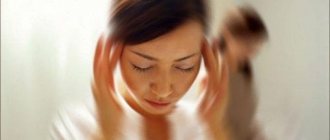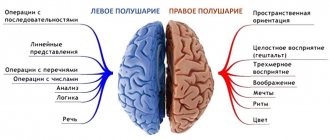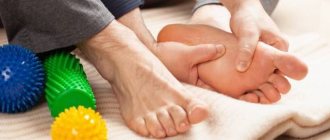Talking in your sleep is considered parasomnia. In medicine, the phenomenon is called somniloquy. The problem most often affects children who have not reached puberty. Experts attribute the failure to the development of the nervous system and a weakened psyche. With age, the condition should normalize on its own. If an adult screams in his sleep, the reasons may be more serious. Psychologists' advice, folk remedies and medications are used as treatment. The doctor is obliged to draw up a course of therapy, focusing on the diagnostic results.
Night screams during sleep in adults
Sleep-speaking (somniloquy) is a common and harmless parasomnia. A person talks in his sleep or even shouts certain phrases loudly, but in the morning he does not remember anything. The attack lasts about half a minute with a high probability of recurrence.
The problem affects approximately 6% of the world's population. The majority of patients are not older than 16 years. The risk group includes people who abuse bad habits, do not maintain sleep hygiene, or have a hereditary predisposition.
The severity of the failure depends on the causative factor. Children scream because of nightmares, and mutter incoherent sounds when faced with a large volume of incoming information. In adulthood, emotional shock comes to the fore. The situation is aggravated by taking medications, alcohol and constant stress.
Characteristic manifestations of the phenomenon
Somniloquy is usually divided into 2 types. The first type is characterized by the pronunciation of clear phrases during the rapid stage of sleep, and the second type is characterized by incoherent sounds during the slow stage. Sleep talking rarely mirrors dreams and occurs to varying degrees. Relatives of the patient can promptly find out about the presence of parasomnia by the following signs:
- The sleeping person turns to someone or begins to call for help, which creates the appearance of awakening.
- Words are spoken in a whisper or in a loud voice. Speech is clear or unintelligible depending on the stage of sleep.
- A person begins to scream, wake up in the middle of the night, cry and wave his arms if he has a terrible dream. The situation is aggravated under the influence of drugs, drugs or alcohol.
- The sleeper, without waking up, is able to get out of bed, scream or ask something from relatives. Characteristic manifestations of somnambulism.
Advice! Waking up a person talking in their sleep is very difficult and is not recommended, so as not to disturb the psycho-emotional background.
The problem is rarely identified on its own, since in the morning the patient does not remember anything. They learn about this type of disorder from people sleeping next to them, who are forced to constantly hear screams, unintelligible sounds and conversations at night.
Finding the reason
Experts in the field of neuropathology and psychiatry believe that screams during sleep occur against the background of excessive stimulation of the nervous system. Perhaps the patient often drinks coffee before bed or watches horror movies in the evenings. In second place are the consequences of the accumulation of negative emotions due to regular exposure to stressful situations. If you don’t learn to relax and throw out the negativity, psychosomatic problems will begin to develop over time. A general list of reasons why people scream in their sleep is given below:
- Nervous overexcitation. Frequent swearing, bad habits, fear of certain factors, disruption of daily biorhythms, watching horror films and taking tonics contribute to the development of parasomnia. Due to the combination of irritants, nightmares appear, interfering with sleep and provoking sleep talk and sudden awakenings.
- Fear under the influence of external factors. You can scream in fear in a dream due to noise, shaking and other sudden and loud actions.
- Taking medications. Disruptions in the sleep-wake rhythm develop under the influence of strong psychotropic drugs. Sleepy speech occurs when treatment is abruptly stopped or at the beginning of treatment.
- Mental disorders. Many variants of parasomnia are common in mentally ill people.
- Impact of alcohol. A drunk person tosses and turns and screams in his sleep due to disproportionate inhibition of parts of the brain. The glitch is especially pronounced when you have nightmares.
- Failure to meet healthy sleep criteria. Stuffiness, ambient noise, light in the eyes and other irritants reduce the quality of rest. Gradually, due to lack of sleep, various types of failures develop.
It is important to know! From an esoteric point of view, the main reason why adults scream and toss and turn in their sleep is internal experiences. The sleeper may be afraid of certain things in real life, which leaves its mark on the subconscious.
Nightmares
Scary dreams mainly plague adults who abuse alcohol and drugs. Unlike ordinary sleep, nightmares appear during the transition from the third stage to the fourth. At this moment, the person's muscles are not completely relaxed.
If you sleep restlessly and talk while you sleep, then you are probably wondering how it is possible that you can talk but are unable to scream. The reason for this paradox, according to Julia Lambert, is that these two phenomena occur during different stages of sleep. In other words, people talk in one phase, and nightmares and the desire to scream arise in another, precisely at the moment when our muscles are maximally relaxed and therefore constrained.
Reasons for concern
Screaming at night stops in children under 16 years of age. If the problem remains relevant or worsens, you will need the help of a neurologist. The specialist will check the child for neurological disorders. If there are no failures, the patient will be redirected to a somnologist and psychotherapist to draw up a picture of sleep and examine the psyche. In some cases, it is urgent to take action before the stated deadline. The following list of alarming symptoms will help you get your bearings in a timely manner:
- regular night awakenings due to nightmares;
- increased activity of sweat glands;
- development of enuresis or encopresis;
- manifestation of sleepwalking;
- detection of symptoms of shortness of breath;
- temperature rise above 38°;
- identifying cases of body shuddering during rest;
- manifestation of teeth grinding;
The voiced situations cannot be left to chance. Alarming symptoms may indicate the development of serious pathological processes. The patient needs to be urgently examined to draw up an optimal treatment regimen and prevent dangerous consequences.
How to relieve stress as an adult
- Brew chamomile or mint tea
- Drink warm milk with honey
- Take a bath with aroma oils
- Take a massage course
- Walk more in the fresh air
- Ventilate the bedroom before going to bed
- Listen to relaxing music
- Read interesting, easy books
- Avoid using devices 30 minutes before bedtime
Proper nutrition, a massage, a walk in beautiful places, fresh air in the house will help avoid stress and ensure a good night. But if you notice serious health problems, consult a doctor immediately. He will select the appropriate treatment method for you.
Treatment Options
On their own, patients can try to eliminate exposure to external irritants and use available methods of calming the nervous system. This advice is relevant if there are no warning signs. In other cases, you will need the help of a doctor. The course of therapy may include the following treatment options:
- traditional methods;
- folk recipes;
- advice from psychologists.
The treatment regimen will have to be combined with sleep hygiene. Treatment is aimed at stopping the causative factor and eliminating discomfort.
Traditional medicine
Traditional methods are used if the malfunction is difficult to eliminate simply by following the rules of healthy sleep. A somnologist prepares a course of treatment based on the results of the examination. A treatment scheme with 3 integral elements is presented:
- taking vitamin complexes;
- undergoing physiotherapeutic procedures;
- the use of drugs to calm the nervous system.
Attention! Drugs with a hypnotic effect and physiotherapy are prescribed only by the attending physician. You can only take vitamins and slightly sedative plant-based medications on your own.
Folk recipes
Traditional medicine rarely causes adverse reactions and can be easily prepared at home. It has a sedative effect thanks to lemon balm, valerian, hawthorn and other natural ingredients. The following methods are suitable for normalizing sleep:
- Herbal infusions with a sedative effect eliminate nervous excitement. The medicine is prepared from 1-2 tbsp. l. collection (hawthorn, valerian, peppermint), poured with 500 ml of boiling water. After 20 minutes of infusion, you should discard the raw materials and leave the liquid. Take ½ cup morning and evening.
- Inhaling relaxing aromas calms the nervous system. The patient needs to pour lavender, chamomile and lemon balm in equal parts into a cloth bag and place it under the pillow or next to the bed.
- Warm water with 1 tsp added. Honey perfectly relieves nervous tension. It is enough to drink 1 cup of sweet drink before bed.
- Evening foot baths allow you to relax and forget about your problems. The effect will be improved by adding essential oils, pine needles and chamomile to warm water.
Most methods are relevant for treating representatives of any age group.
Advice! If you are prone to allergies, it is advisable to consult a doctor before using folk remedies.
Recommendations from a psychologist
Screams in a dream are regarded by experts as a manifestation of suppressed emotions. In real life, many people cannot fully express dissatisfaction, irritation, and resentment due to the disapproval of such demonstrations by society. Gradually, negativity accumulates, which leads to the development of parasomnia.
As a treatment, it is enough to understand the cause of the failure and “pour out” the emotions to a loved one
person or express your indignation in writing. You can repeat the procedure until complete recovery. If the recommendation does not help or the patient is not able to understand what exactly is “compressed inside”, you need to do the following exercise:
- find a comfortable body position;
- close eyes;
- make sure your breathing remains even;
- remember your happiest memory;
- think about the sensations you experience after waking up;
- Comparing emotions, draw a conclusion for yourself.
If you perform the exercise correctly, you will be able to discern the source of the problem. Further actions should be aimed at releasing suppressed emotions.
Prevention of disturbances in the sleep-wake rhythm
The development of parasomnia can be stopped by eliminating exposure to irritating factors. The patient must establish a sleep-wake schedule, create a suitable environment for relaxation in the bedroom and follow the recommendations of doctors. It’s easier to focus on the general list of tips:
- To refuse from bad habits. Alcohol-containing drinks, drugs and cigarettes have a detrimental effect on the body. If you cannot stop yourself, you should contact specialized institutions.
- Creating comfortable conditions for relaxation. A person should feel relaxed in the bedroom. It is necessary to try to create a quiet and darkened environment with an air temperature of 18 to 22° and a humidity of up to 50-60%.
- Try not to excite the nervous system in the evening. A few hours before rest, it is recommended to stop working at the computer and watching TV. Only moderate physical and intellectual activity is allowed. Instead of coffee and energy drinks, it is better to drink tea or a herbal decoction with a sedative effect. Shortly before bed, you can walk down the street, listen to relaxing music, read a book or take a bath.
- Follow the schedule. You need to go to bed and wake up at the same time. Failure to comply with the rule will lead to disruption of daily biorhythms and lack of sleep.
- Don't overeat before bed. It is advisable to take the last meal 2-3 hours before rest, otherwise digestive problems will arise.
Screams in sleep are considered a common manifestation of excessive stimulation of the nervous system. In the absence of other irritants, it is enough to follow the advice of specialists to normalize the psycho-emotional state. If the problem is the development of pathologies or addiction to harmful substances, you should definitely consult a doctor.
Why does an adult grind his teeth in his sleep?
The main cause of disturbances is stress. Bruxism is a natural human reaction to nervous shock, excess physical and mental activity, and emotional overexcitement. Teeth grinding at night can also be the result of ingesting large amounts of caffeine, alcohol, and may be a consequence of insomnia or nightmares. When a person goes to bed with anger that does not allow him to relax, bruxism seems to help relieve tension.
If you grind your teeth in your sleep, it may be due to your oral health. Grinding can occur due to malocclusion, missing teeth, and improperly sized crowns or bridges.











